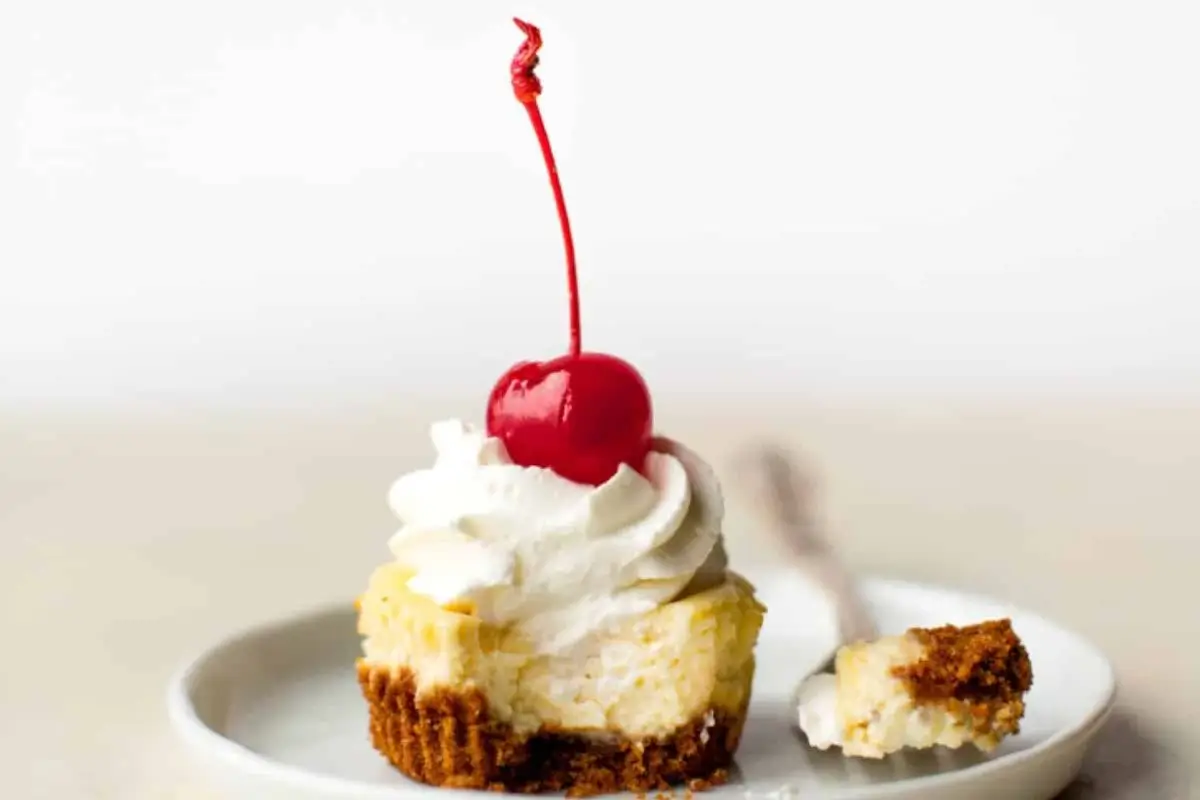Mini cheesecakes are a delightful twist on the classic dessert, combining the rich and creamy texture of a traditional cheesecake with the ease of single servings. These bite-sized treats offer the same luxurious flavor and creamy goodness as a full-sized cheesecake, but in a more convenient and portion-controlled form. Perfect for parties, gatherings, or just satisfying a sweet craving, classic mini cheesecakes are a dessert everyone loves.

Ingredients Overview
For a great mini cheesecake recipe, the quality of ingredients makes all the difference. These classic mini cheesecakes require just a few basic items, but each ingredient plays an essential role in creating that beloved cheesecake texture and taste.
Choosing Quality Ingredients
- Cream Cheese: The star of the show, cream cheese needs to be full-fat for the best texture and flavor. Philadelphia is a popular choice, but any high-quality cream cheese will work.
- Sugar: Granulated sugar sweetens the mixture without affecting the consistency. It balances the tanginess of the cream cheese for a delightful taste.
- Eggs: Eggs act as a binder, giving the cheesecake its structure. Make sure they’re at room temperature to blend seamlessly.
- Vanilla Extract: A touch of vanilla enhances the flavor, giving the cheesecakes a hint of sweetness and warmth.
- Sour Cream: This ingredient softens the cheesecake and adds a subtle tang, creating a perfectly balanced flavor.
Essential Baking Tools
For mini cheesecakes, a muffin tin or a specialized mini cheesecake pan is essential, as well as paper or silicone liners. These tools ensure the cheesecakes maintain their shape and are easy to remove.
Preparing the Crust
A great crust provides a satisfying crunch to balance the creamy filling. The classic choice is a graham cracker crust, but other options like Oreo or digestive biscuits work well too.
Tips for the Perfect Crust
To create a sturdy crust, combine crushed graham crackers with melted butter and a bit of sugar. Press the mixture firmly into each liner, making sure it’s even and compact to prevent crumbling. Baking the crust for a few minutes before adding the filling will keep it crisp and flavorful.
Alternatives for the Base
If you’re looking to switch things up, try using:
- Chocolate cookies for a deeper flavor.
- Gluten-free crackers for those with dietary restrictions.
- Gingersnap cookies for a holiday-inspired twist.
Making the Cheesecake Filling
The key to a smooth, creamy filling lies in mixing the ingredients just right. Overmixing can lead to cracks, while under-mixing can result in lumps.
Key Ingredients for Creamy Filling
- Cream Cheese and Sugar: Blend these two together until smooth and free of lumps.
- Eggs: Add them one at a time and mix on low speed, avoiding overmixing.
- Sour Cream and Vanilla: Stir these in last for a silky texture and perfect flavor.
Mixing Techniques
For best results, start with room temperature cream cheese. Use an electric mixer on low to medium speed to avoid adding too much air, which can lead to cracks in the finished cheesecakes.
Baking Process
Baking mini cheesecakes can be a bit tricky, as they’re more prone to over-baking. The secret is to keep an eye on the color and texture to achieve a soft, creamy texture.
Baking Tips for Mini Cheesecakes
Bake at a lower temperature, around 325°F, to ensure an even cook without browning the tops. When done, the edges should be set, but the centers should still jiggle slightly. They will firm up as they cool.
Common Mistakes to Avoid
- Overmixing: Leads to cracks and an airy texture.
- Overbaking: Creates a dense texture, so check frequently.
- High Temperature: Causes the cheesecakes to brown and crack.
Cooling and Setting
Cooling is crucial for mini cheesecakes. Once they come out of the oven, allow them to cool gradually.
The Importance of Cooling
A slow cooling process helps prevent cracks. Start by turning off the oven and cracking the door slightly, allowing them to cool in the oven for 10-15 minutes before transferring them to a cooling rack.
Avoiding Cracks
Cracks can occur due to sudden temperature changes or over-baking. If cracks do appear, don’t worry—toppings can cover them up and still make for a beautiful presentation.
Creative Toppings and Garnishes
Mini cheesecakes are versatile and can be topped with a wide variety of delicious garnishes.
Fresh Fruits
Add a pop of color and a refreshing flavor with fresh berries like strawberries, blueberries, or raspberries. Mango slices or kiwi can also add a tropical twist.
Chocolate Drizzles
Drizzle melted chocolate over the tops for a touch of indulgence. Dark, milk, or white chocolate all work beautifully.
Nut Options
For a crunchy texture, try adding chopped nuts, like pecans, walnuts, or almonds, on top.
Flavor Variations
While the classic mini cheesecake is perfect on its own, experimenting with flavors can add a unique touch to your dessert.
- Chocolate Cheesecakes: Add cocoa powder or melted chocolate to the filling.
- Lemon Cheesecakes: Incorporate lemon zest and juice for a citrusy twist.
- Berry Cheesecakes: Mix in fruit preserves or puree for a fresh, fruity flavor.
Serving Suggestions
These mini cheesecakes are excellent for any occasion, from family gatherings to elegant parties. For a simple yet classy presentation, place each mini cheesecake on a small plate with a few berries and a sprig of mint. They’re also great when paired with a cup of coffee or dessert wine.
Storage Tips
Mini cheesecakes can be stored in the fridge for several days or frozen for a quick, convenient treat anytime.
Refrigeration
Store your cheesecakes in an airtight container in the refrigerator for up to a week.
Freezing for Later
Wrap each mini cheesecake individually and freeze them for up to three months. Thaw them in the refrigerator for a few hours before serving.
Healthier Modifications
For those who want a lighter version, mini cheesecakes can be adjusted to fit a healthier diet.
Lowering Sugar
Use a sugar substitute or simply reduce the sugar content for a less sweet but equally delicious cheesecake.
Gluten-Free Crust Options
Substitute graham crackers with gluten-free cookies or crackers to make this dessert gluten-free without sacrificing flavor.
Frequently Asked Questions
How long can mini cheesecakes stay fresh?
Mini cheesecakes can stay fresh in the refrigerator for up to a week and in the freezer for up to three months.
Why do my mini cheesecakes crack?
Cracks typically occur from overmixing, overbaking, or sudden temperature changes. Mixing gently and cooling slowly can help prevent cracks.
Can I use low-fat cream cheese?
Yes, but the texture may be less creamy. Full-fat cream cheese provides the best results.
What is the best way to add flavor to mini cheesecakes?
Incorporate ingredients like chocolate, fruit purees, or extracts to change up the flavor.
How do I avoid overbaking?
Bake until the edges are set but the centers still jiggle. This prevents the cheesecakes from becoming too dense.
Can mini cheesecakes be made in advance?
Yes, mini cheesecakes are perfect for making in advance, especially since they store well in the fridge and freezer.
Conclusion
Classic mini cheesecakes are a delightful dessert that combines the elegance and taste of a traditional cheesecake with the convenience of single-serving portions. Easy to make and versatile in flavor, they’re a great choice for gatherings or as a personal treat. From perfecting the crust to experimenting with flavors and toppings, these bite-sized treats are sure to impress and satisfy every cheesecake lover.

